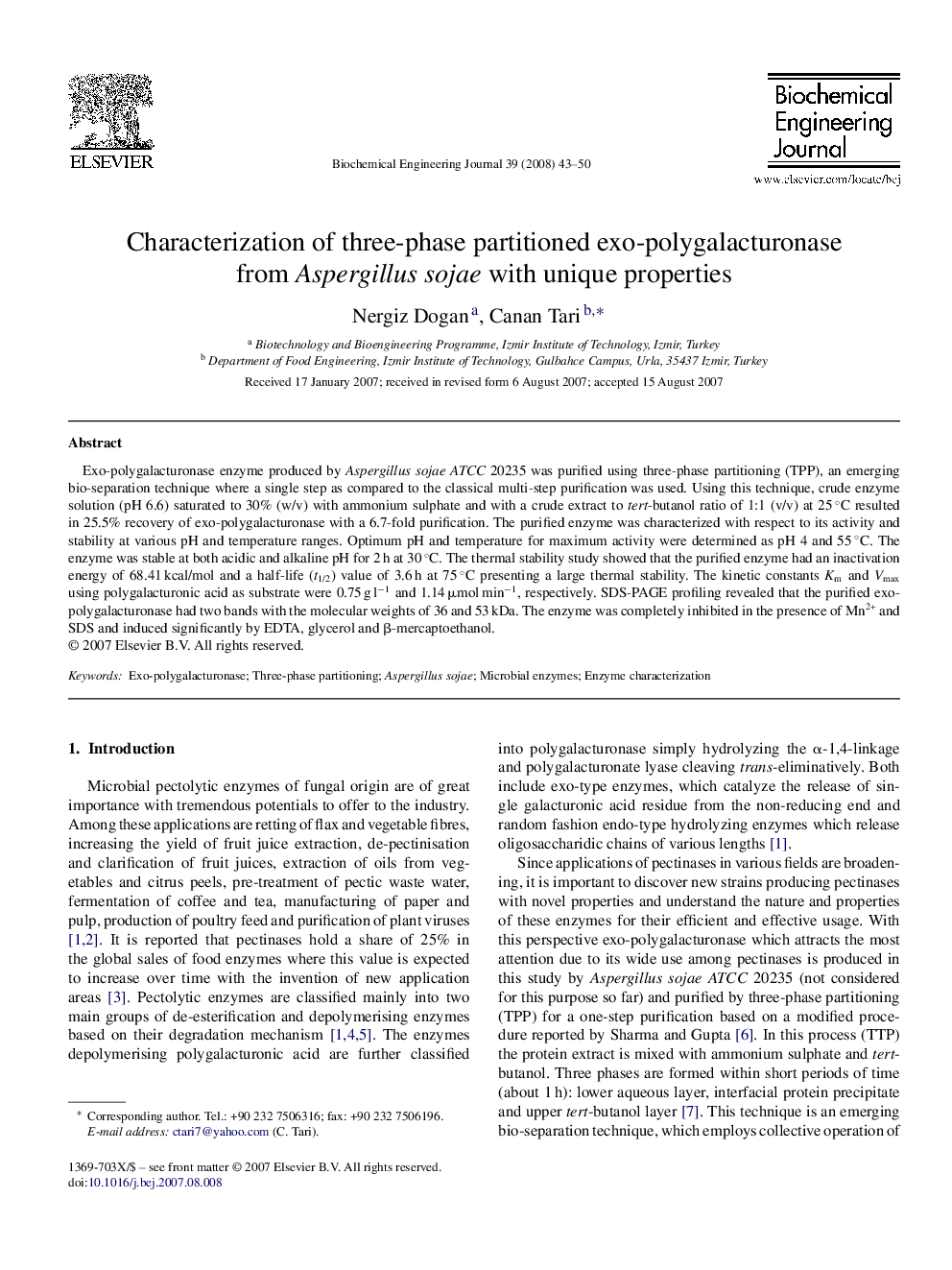| Article ID | Journal | Published Year | Pages | File Type |
|---|---|---|---|---|
| 4534 | Biochemical Engineering Journal | 2008 | 8 Pages |
Exo-polygalacturonase enzyme produced by Aspergillus sojae ATCC 20235 was purified using three-phase partitioning (TPP), an emerging bio-separation technique where a single step as compared to the classical multi-step purification was used. Using this technique, crude enzyme solution (pH 6.6) saturated to 30% (w/v) with ammonium sulphate and with a crude extract to tert-butanol ratio of 1:1 (v/v) at 25 °C resulted in 25.5% recovery of exo-polygalacturonase with a 6.7-fold purification. The purified enzyme was characterized with respect to its activity and stability at various pH and temperature ranges. Optimum pH and temperature for maximum activity were determined as pH 4 and 55 °C. The enzyme was stable at both acidic and alkaline pH for 2 h at 30 °C. The thermal stability study showed that the purified enzyme had an inactivation energy of 68.41 kcal/mol and a half-life (t1/2) value of 3.6 h at 75 °C presenting a large thermal stability. The kinetic constants Km and Vmax using polygalacturonic acid as substrate were 0.75 g l−1 and 1.14 μmol min−1, respectively. SDS-PAGE profiling revealed that the purified exo-polygalacturonase had two bands with the molecular weights of 36 and 53 kDa. The enzyme was completely inhibited in the presence of Mn2+ and SDS and induced significantly by EDTA, glycerol and β-mercaptoethanol.
